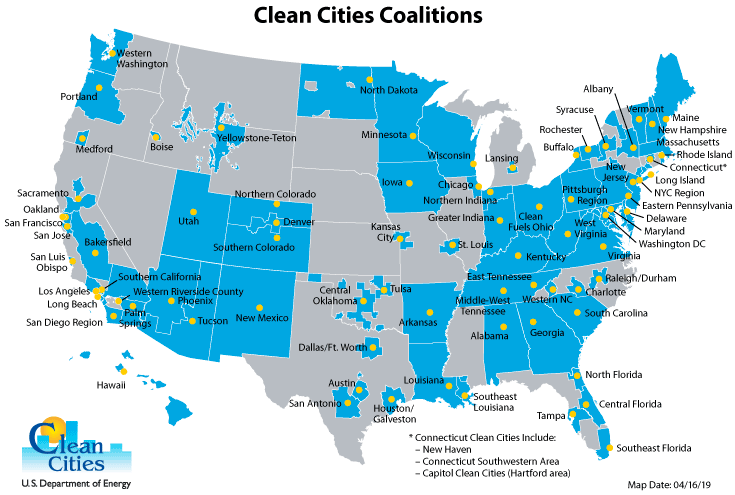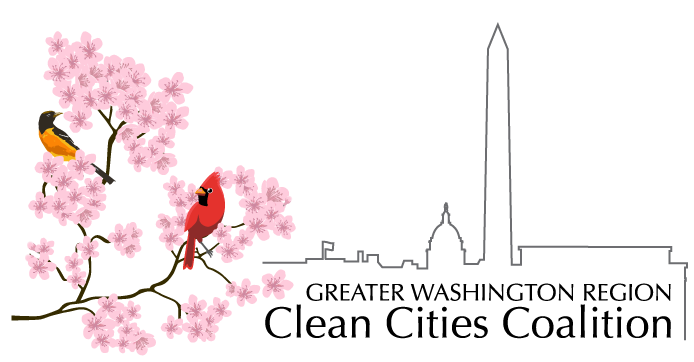The Greater Washington Region Clean Cities Coalition
is one of nearly 80 coalitions in the US that fosters economic, environmental, and energy security by working locally to advance affordable, domestic transportation fuels, energy efficient mobility systems, and other fuel-saving technologies and practices. The U.S. Department of Energy (DOE) established the Clean Cities Coalition Network in 1993 to boost the country’s energy security, economic vitality, and quality of life by advancing affordable, efficient, and clean transportation fuels and technologies. Over the past 30 years, coalition activities have saved the equivalent of 13 billion gallons of gasoline and prevented more than 67 million tons of greenhouse gas emissions. Clean Cities coalitions have also helped place more than 1.3 million alternative fuel vehicles on U.S. roads and establish the charging and fueling infrastructure to serve this growing market.

At the local level, GWRCCC leverages these resources to create networks of local stakeholders and provide technical assistance to fleets implementing alternative and renewable fuels, idle-reduction measures, fuel economy improvements, and emerging transportation technologies. We also work to promote diversity, inclusion and equity in the alternative fuels industry and movements for reducing pollution and environmental justice.
GWRCCC is supported by stakeholders that include area government jurisdictions, the Council of Governments and regional planning authorities, trade associations, private companies and concerned citizens. All have a common interest to encourage the expanded use of new automotive technology to replace gasoline and diesel fuel for a cleaner transportation future. We invite you to get involved and become a part of our mission.
The GWRCCC’s mission is:
- A 501(c)3 not-for-profit organization
- partner to organizations, corporations, government of all sorts in the implementation of advanced fuels, education, and community engagement
- Facilitates development of regional and local infrastructure to support advanced fuels
- Prioritizes diversity, inclusion and equity in the environmental industry
- Works at local, state, and federal levels to support and create policy
- Ensures that environmental benefits are also economic benefits
- Providing business development and technical assistance services
- Providing education and community outreach and engagement services
- Providing project management and development services
- Providing work force development support and solutions
